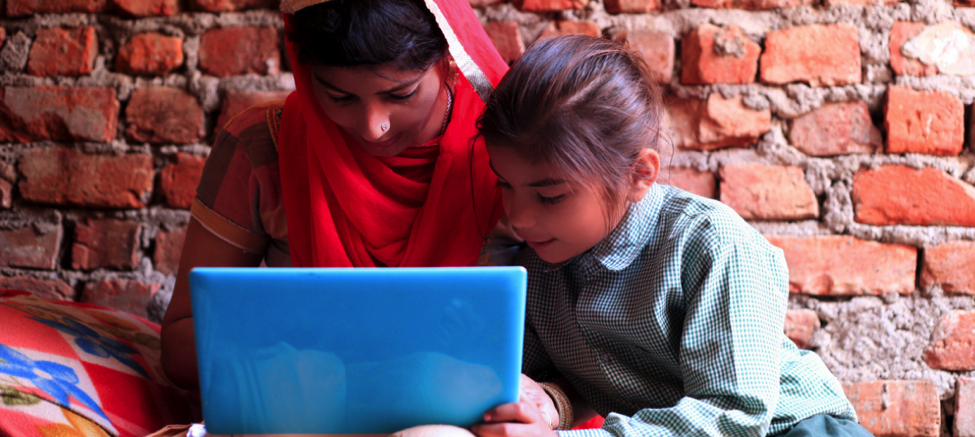Introduction: Girls from rural areas and their education
Education is a basic human right. There is no argument about that. Regardless of your gender, race, and social class, you are entitled to basic education. In fact, the Universal Declaration of Human Rights cites it as one of its basic 30 human rights.
However, despite its necessity, not everyone is able to access basic education. This is due to a plethora of issues such as poverty and gender. Arguably, the worst impacted are girls, especially those from rural and poverty-stricken areas. Parents prefer to send boys to school over girls, especially if they cannot afford to send both.
Statistically speaking, majority of girls are in school. In rural India, only 4.1% of 11-14 years old girls were not in school in 2018. This is not a large amount. The issue here is that these statistics only look at the number of girls enrolled in school. We do not know for sure how many of these girls actually attend school regularly or complete school. We should give importance to not only enrolling girls in school, but also to retaining them in school.
Various factors hinder girls from staying in school. According to McKinsey, girls who do two hours of housework per day have a lesser chance of finishing secondary school. Implying that girls might be kept at home from school for domestic chores. Child marriage is another reason why girls are denied education. Therefore, the key to tackling this issue is to understand the factors that keep girls away from education.
Whilst there are numerous factors, I will focus on the biggest one currently, that is the pandemic.
The Pandemic
2020 brought with it a rather unpleasant surprise, a novel disease that has spread worldwide. On 11th March 2020, WHO declared the outbreak as a pandemic. The ongoing coronavirus pandemic has led to significant changes in everybody’s lives. Due to the need for social distancing, our everyday lives have moved to the four walls of our home. Homes are now workplaces and classrooms.
This means that schools now function online. Teachers and educators now conduct classes online, through video conferencing platforms such as Zoom. This sudden change, although necessary, is not easy for most students.
I too struggled to adapt to online classes. I found the delay in my exams, and the last minute change in it’s format extremely frustrating. However, I had, and have, the luxury of internet and a computer device. Despite the circumstances, I am able to continue on with my education.
Unfortunately, this is not the case for all girl students. A recent UNESCO report states that the lockdown has affected over 320 million children in India. That is 158 million girls. This obviously does not mean that all these children are dropping out of education. It simply means that a great number of students would not be able to make the best use of school. Many will eventually be forced to drop out.
The Problems
The most obvious reason why girls might have to drop out of education is lack of resources. Online classes require an internet connection and a mobile device at least. Poor families do not have such facilities. If they have any mobile devices, it is often only one. Most of them are unable to afford any more, especially during this pandemic. It is not feasible for all the children in a family to share one device for school. Therefore, parents have to make a choice between their children. In a patriarchal society, boys are obviously given priority over girls. Thus, girls are denied access to their classes.
Internet connectivity is also a necessity. In India, only 12.5% of the households with students have internet access at home. How would the rest access online classes?
Furthermore, the lockdown has led to everyone spending more time at home. With their daughters at home, families would now be able to make them do more domestic chores. At least previously, girls would have the hours they spent at school solely for education. Now, it is most likely they would have to balance both housework and schoolwork simultaneously. This can lead girls to neglect school.
Another concern is the economic aspect of the pandemic. The pandemic has led to a rise in unemployment and poverty. More and more people are losing their jobs. In rural areas, most people usually work daily wage jobs. With this economic downturn, a lot of such people would struggle to find work. A lot of families would lose their source of income. Hence, they would no longer have the funds to support all of their children’s education. They would also not be able to afford the facilities needed for online schooling. Girl children and their education would be the ultimate sacrifice.
Such scenarios can have a disastrous effect on girls and their lives. It can dampen their futures, and also affect them mentally. Take the case of a 14-year-old student from Kerala. Her father, a daily wage labourer, was without work for over two months. Hence, he could not fix the television that she needed for online school. Allegedly distraught over this, she took her own life.
Conclusion
While the pandemic is unexpected, it is high time that we find solutions to these problems. No girl should be denied education just because they cannot access or afford online classes. We should not compromise their future and their mental health.
I believe that the responsibility of finding solutions fall on governments and local authorities. It should be their duty to ensure that no child is being left behind. Schools can make a list of all the students who do not have the necessary facilities. Then, local governments and authorities can provide such students with the required resources.
During this nerve-wracking time of our lives, we should remember the importance of kindness and empathy. If you are fortunate enough to have enough money to spare, consider donating to the impoverished. Every cent goes a long way. Your money could contribute towards a girl continuing her schooling.
We must do all we can as a community to educate our girls.
About The Author

Layaal Ali is a Maldivian law student currently residing in Malaysia. A staunch feminist, she believes strongly in bringing down the patriarchy. She enjoys reading good books, and writing about women’s rights.
Picture Credit: Vogue
Edited by: Shruti Kapoor
Blog posts by this author:
Image Source: IStock
